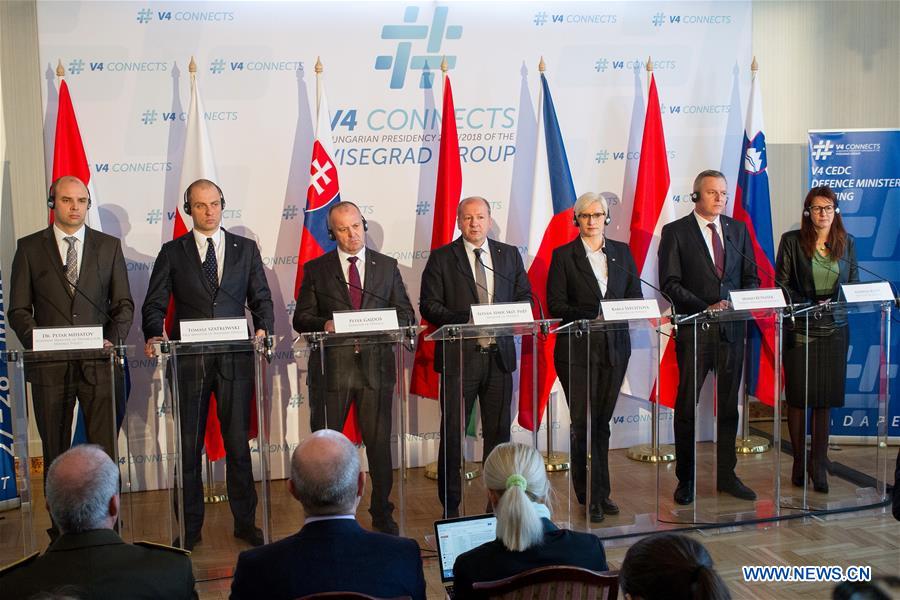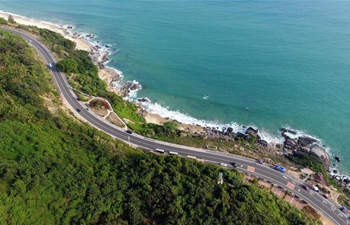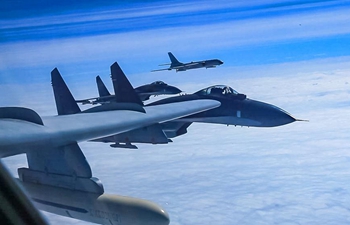
(From L to R) Croatian Assistant Minister for Defense Policy Petar Mihatov, Polish Deputy Defense Minister Tomasz Szatkowski, Slovak Defense Minister Peter Gajdos, Hungarian Defense Minister Istvan Simicsko, Czech Defense Minister Karla Slechtova, Austrian Minister of National Defense and Sports Mario Kunasek, and Slovenian Defense Minister Andreja Katic, attend a joint press conference following a meeting of the Central European Defense Co-operation (CEDC) in Budapest, Hungary, on March 28, 2018. Defense officials of six Central European nations and Poland agreed on Wednesday to further develop their defense capabilities to better protect European values and the borders of Schengen zone. (Xinhua/Szilard Voros)
BUDAPEST, March 28 (Xinhua) -- Defense ministers of six Central European nations and Poland agreed on Wednesday to further develop their defense capabilities to better protect European values and the borders of Schengen zone.
The security of the Central European region is the warrantee to Europe's future, Hungarian defense minister Istvan Simicsko told a press conference following a meeting of the Central European Defense Co-operation (CEDC).
The CEDC is a military collaboration consisting of Austria, Czech Republic, Slovakia, Hungary, Slovenia and Croatia. Poland has an observer status in this cooperative framework.
The joint objective is enhancing the defense co-operation. Since the European migrant crisis of 2015-2016, the cooperation has focused on handling mass migration.
"The member states also developed a joint action-plan in order to help each other quickly and efficiently in case of trouble," Simicsko added.
The defense officials reviewed the security situation and different threats such as mass illegal migration and terrorism, and agreed that it would be wise to prepare for the prolongation of the migration crisis.
Simicsko also suggested that Hungary organize an international military exercise on migration management in 2019, similarly to the practice organized by Croatia in 2017.
The Schengen zone, which currently embraces 26 European countries, acknowledges the abolishment of their internal borders with other member nations and outside, for the free and unrestricted movement of people, goods, services and capital.
"The (migration) crisis is not over yet," warned Austrian Minister of National Defense and Sports Mario Kunasek.
Illegal immigrants were still caught on regular basis in Austria and as long as the protection of the external borders was not implemented, the countries had to protect their own borders and increase their internal security, Kunasek added.
"We have a voice together," Czech Defense Minister Karla Slechtov said. She said the participants of the meeting of the seven countries reviewed how they could cooperate against massive illegal migration, terrorism and in international missions.














